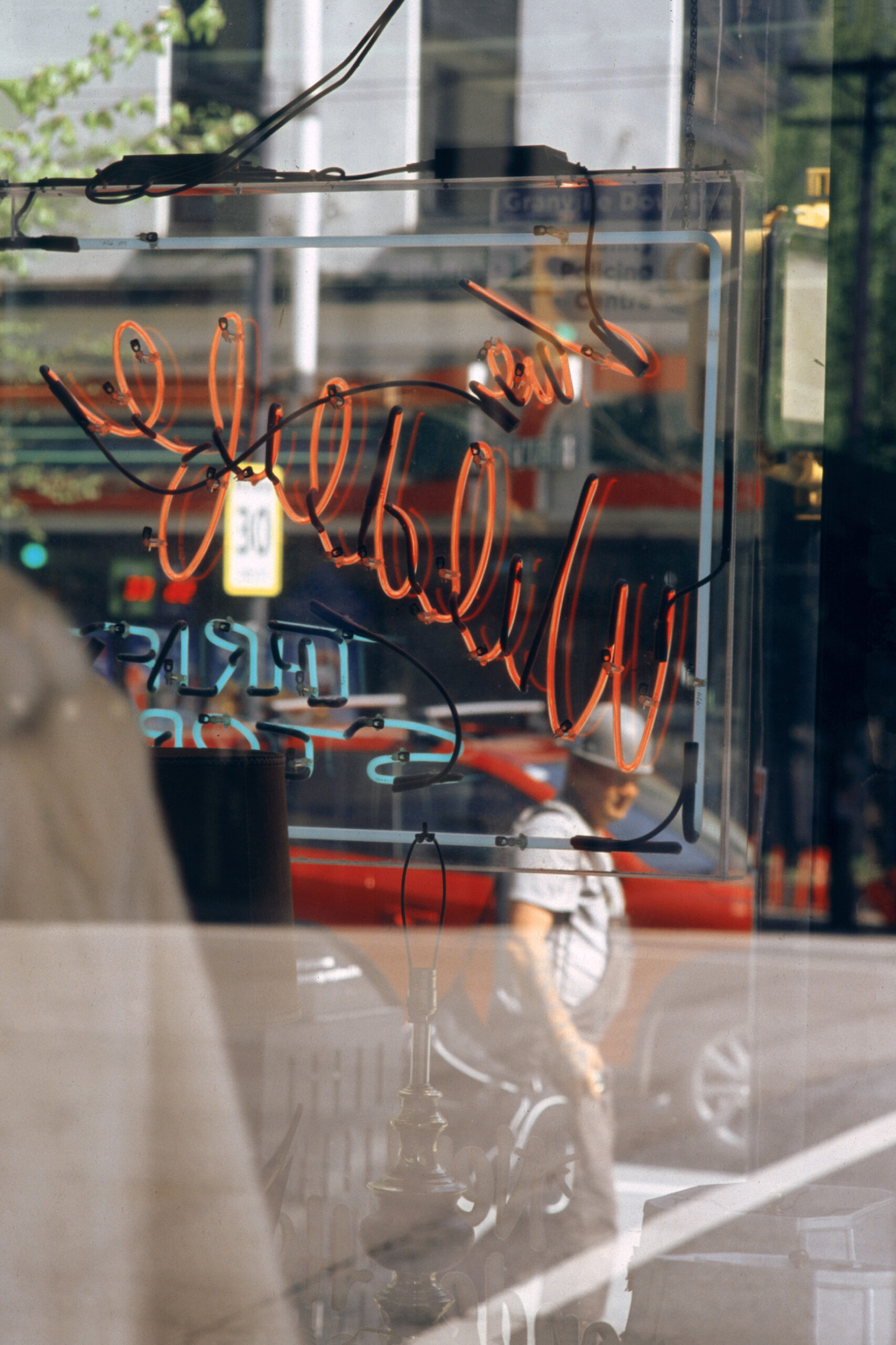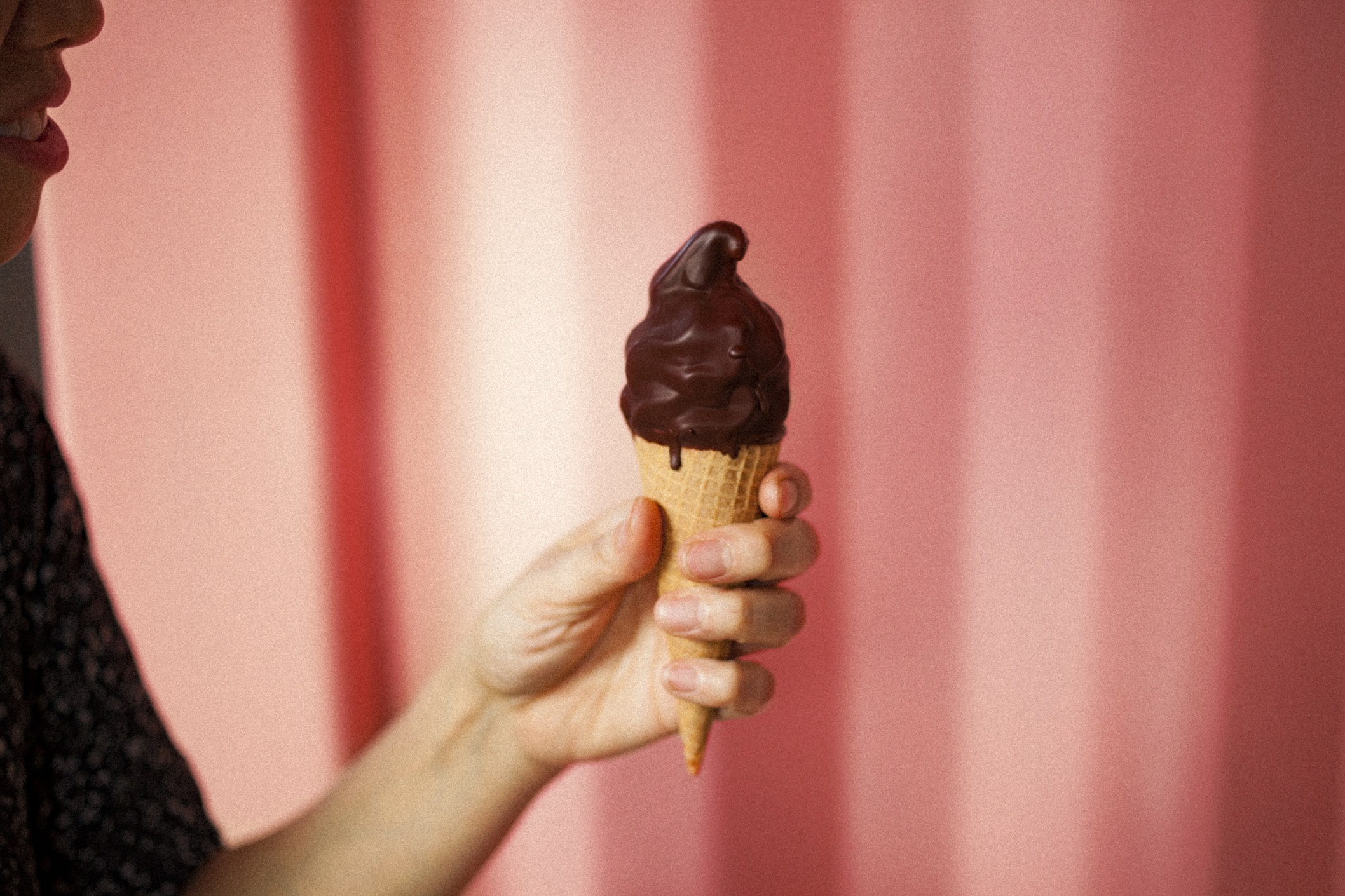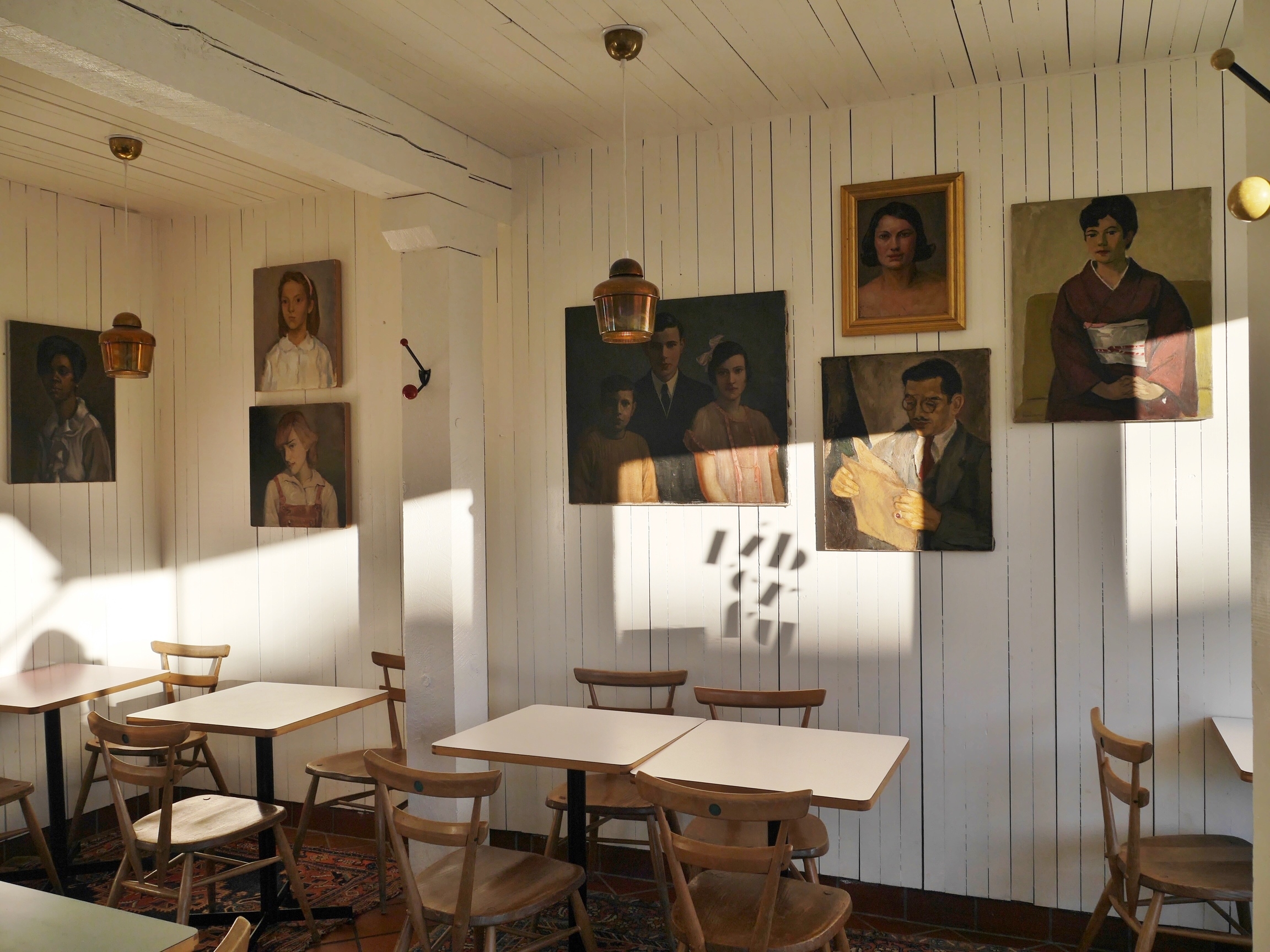-
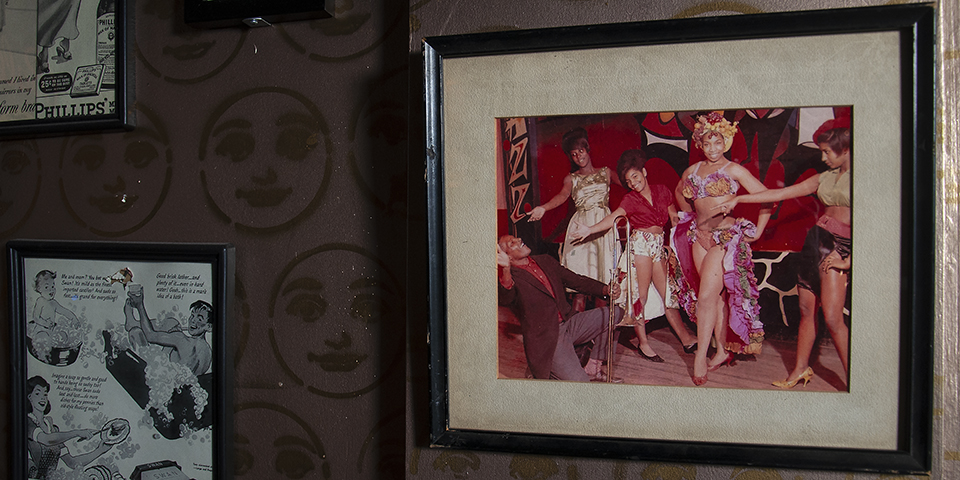
Deanna Bowen, Choo Choo Williams at the Harlem Nocturne, 2019. Courtesy the artist and Lovena Fox.
-
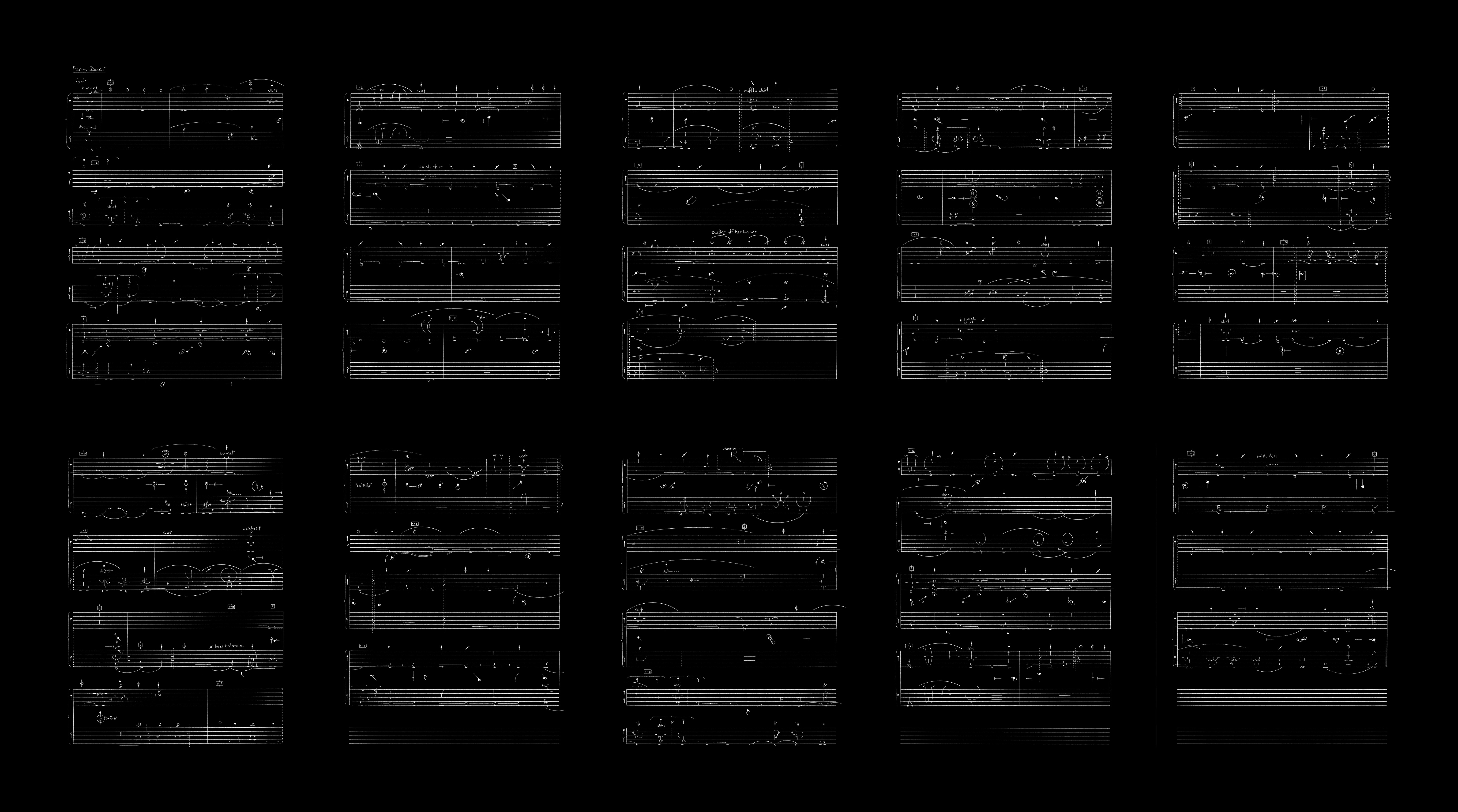
Deanna Bowen, Gibson Notations 2, 2019. Courtesy the artist
-
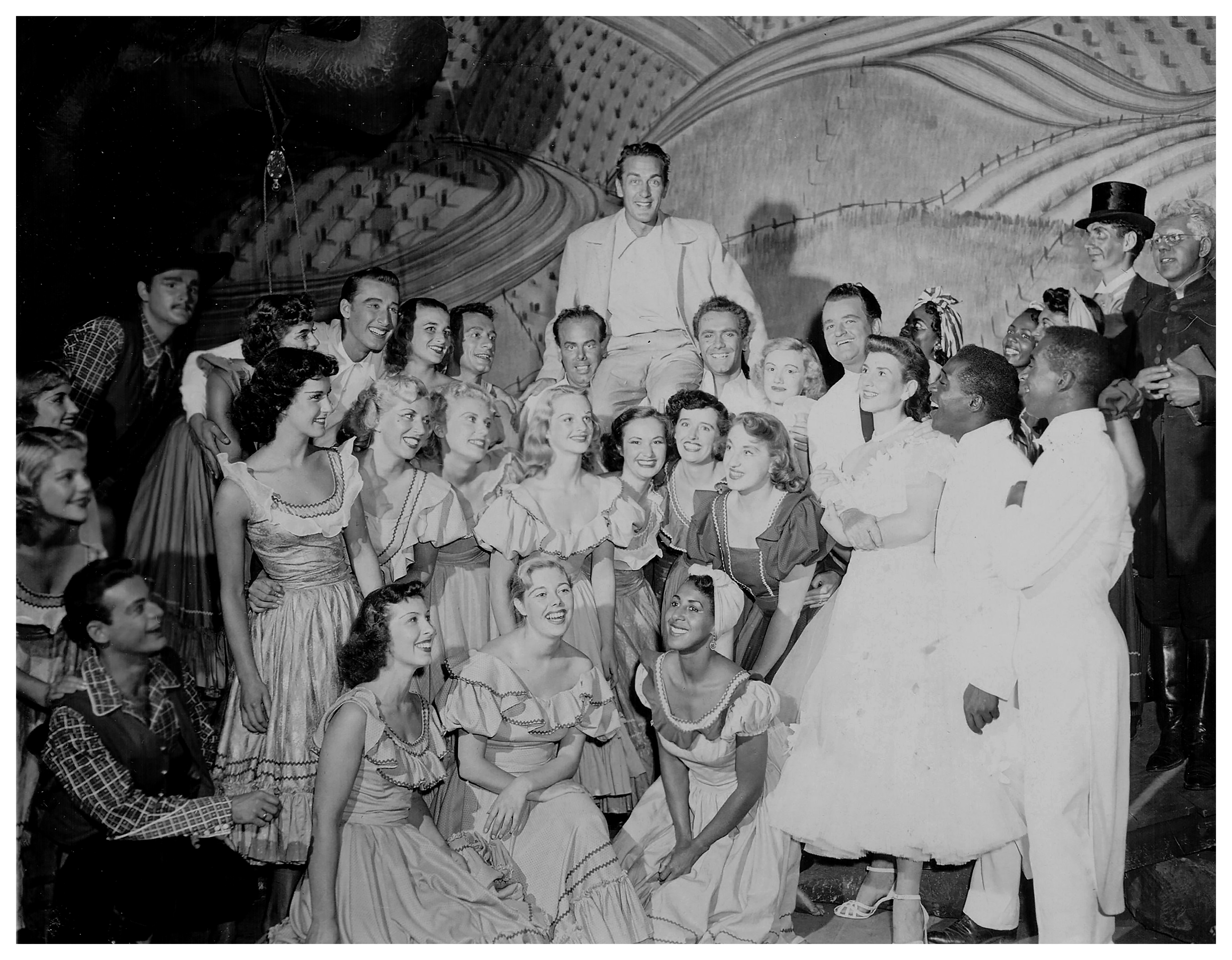
Deanna Bowen, Theatre Under the Stars’ cast photo from Finian’s Rainbow, circa 1953, 2019. Courtesy the artist, Theatre Under the Stars and Cecilia and Roger Smith.
-
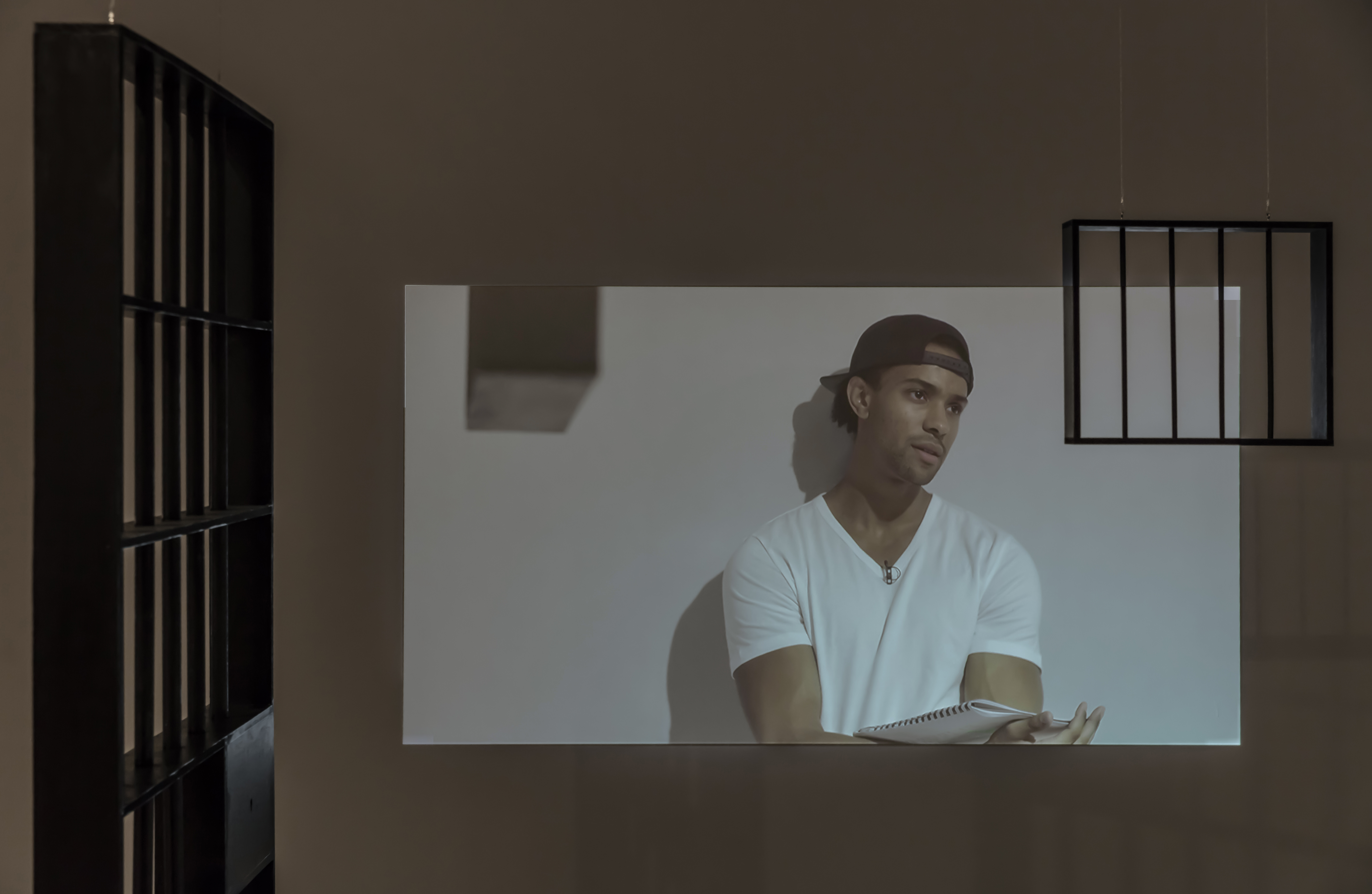
Deanna Bowen, installation view from
On Trial The Long Doorway, Mercer Union, 15 September – 4 November, 2017
A Harlem Nocturne
A history untold at the Contemporary Art Gallery in Vancouver
The past is revisited and reignited through the Contemporary Art Gallery’s (CAG) latest exhibition, A Harlem Nocturne by Toronto-based interdisciplinary artist Deanna Bowen. Born in Oakland, California, and raised in Vancouver, B.C., Bowen dedicates her artistry to examine the overlooked history of the black experience, threading her own familial history with that of the larger community. Her solo exhibition at the CAG is a deep dive into historical archives and forgotten documents from the forties to late-seventies to unearth a story about black Canadians that history forgot to tell.
A Harlem Nocturne shares the name of a nightclub in Vancouver during the fifties and sixties, but the exhibit rewinds even further to the city’s entertainment industry of the 1940s. Under the surface of glamour and stardom, nightclubs and theatres, Bowen reveals the complexity of black entertainers living in a city of societal and institutionalized police racism. She revisits the celebrated fame of black icons of the time, such as entertainers and dancers Leonard Gibson or Kathleen Dunham who were at once admired and exoticized, yet surveilled and attacked. The complexity of their existence is displayed across the B.C Binning Gallery at the CAG through the archival—reports of racism at nightclubs, a derogatory FBI report on Dunham—and the deeply personal for Bowen—a recorded conversation of Bowen and her mother at her aunt’s wake, a transcript of another conversation with her mother about her father.
Vancouver entertainers from Bowen’s own family are also prominent throughout the exhibition, instilling nostalgia with the forensic nature of her research. Through recovered photographs, we see her great-uncle Herman Risby, who appeared in Vancouver’s Theatre Under the Stars, and her distant cousin Choo Choo Williams, a dancer at the Harlem Nocturne.
The exhibition traces a finger along time to “establish the pre-existing patterns that contributed to the destruction of a community,” as Bowen explains it. She refers to the creation of the Georgia viaduct that infamously displaced Vancouver’s black community in Hogan’s Alley during the seventies. “This is the class of people that Vancouver would prefer not to see,” Bowen says of the exhibition.
Accompanying the exhibit is a video installation of Bowen’s re-enactment of a 1956 CBC teledrama The Long Doorway, in which her great-uncle played a role, about a black lawyer defending a white student accused of a hate crime. While no recordings of the teledrama exist anymore, Bowen’s version is a reinterpretation through her own creativity, with a young cast playing multiple roles, and retitled to On Trial The Long Doorway. The film, created in partnership in 2017 with Toronto-based contemporary art centre Mercer Union, is split into multiple screens at the CAG’s Alvin Balkind Gallery and overlap at different times for a sensory experience. The full film, however, can be seen off-site at the Western Front.
“I think I’ve done a really good job of balancing what needs to be revealed to make this story grounded,” the artist says of her work. “I think I’ve done my job.”
A Harlem Nocturne is on display in Vancouver at the Contemporary Art Gallery, and On Trial The Long Doorway is presented in its entirety off-site at the Western Front, until June 16.
_______
Never miss a story. Sign up for NUVO’s weekly newsletter, here.





